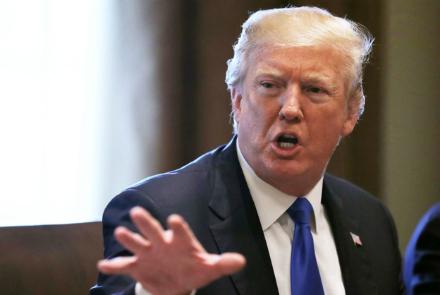US President Donald Trump told visiting members of the UN Security Council on Monday the United States would no longer talk with the Taliban following the spate of recent attacks in Afghanistan, the New York Times reported.
Trump railed against a series of "atrocities" in Afghanistan and said as a result the US would not engage in any future talks with the Taliban as the administration seeks to end a stalemate in America's longest war, the New York Times reported.
"Innocent people are being killed left and right. Bombing, in the middle of children, in the middle of families, bombing, killing all over Afghanistan," Trump said. "So we don't want to talk with the Taliban. There may be a time but it's going to be a long time."
His comments followed a deadly suicide bombing in Kabul, that killed at least 103 people and wounded over 200. This came days after a 17 hour siege on the Intercontinental Hotel which claimed the lives of an estimated 43 people.
The New York Times reported Trump's remarks at a diplomatic luncheon marked a shift in tone on Afghanistan.
Early Monday, Daesh insurgents targeted a military academy in Kabul and killed 11 military personnel.
The New York Times reported that earlier in the month, UN Ambassador Nikki Haley, who helped organize Monday's luncheon, said the US policy on Afghanistan was working and the parties were "closer to talks with the Taliban and the peace process than we've seen before."
Several attempts to hold peace talks between the Afghan government and the Taliban have failed.
But what does the Afghan government says?
“The Taliban has practically crossed the red line and today the Afghan government considers it its obligation to use all available resouces and means against the terrorist groups,” said President Ashraf Ghani’s spokesman Shahhussain Murtazawi.
But, the Afghan High Peace Council (HPC) says that a diplomatic settlement to the conflict in Afghanistan must be sought.
“Peace cannot be achieved by escalating the war,” the HPC deputy head Nadir Naeem said. “I hope the Afghan government’s leadership will protect its freedom and keep open the window for peace.”
Former special envoy of Ghani, Ahmad Zia Massoud, termed the new US stance in favor of Afghanistan’s future.
“Taliban has control over 40 percent of Afghanistan’s territory. How will they be willing to endorse the peace table? They must be defeated through military force,” Massoud said.
“The first scenario is that the war against the Taliban will be intensified, the second scenario is that the Taliban will be forgotten,” said Faramarz Tamanna, Director General of the Center for Strategic Studies of the Ministry of Foreign Affairs.
The Ulema Council of Afghanistan meanwhile stressed the need on Tuesday to boost peace efforts.
“We welcome the support of the Indonesian president for peace in Afghanistan,” said Qiamuddin Kashaf , head of the Ulema Council, at a ceremony on Tuesday.
In response to Trump’s comments, Taliban in a statement claimed that the remarks by the US president show that the Afghan government does not have the authority to engage in peace talks and instead it takes dictation from Washington regarding the issue.
Taliban claimed that the responsibility of bloodshed in Afghanistan is now lying on the shoulders of the US.


